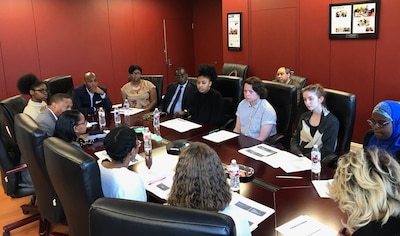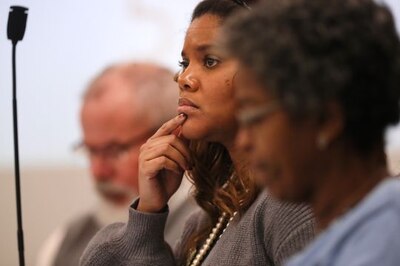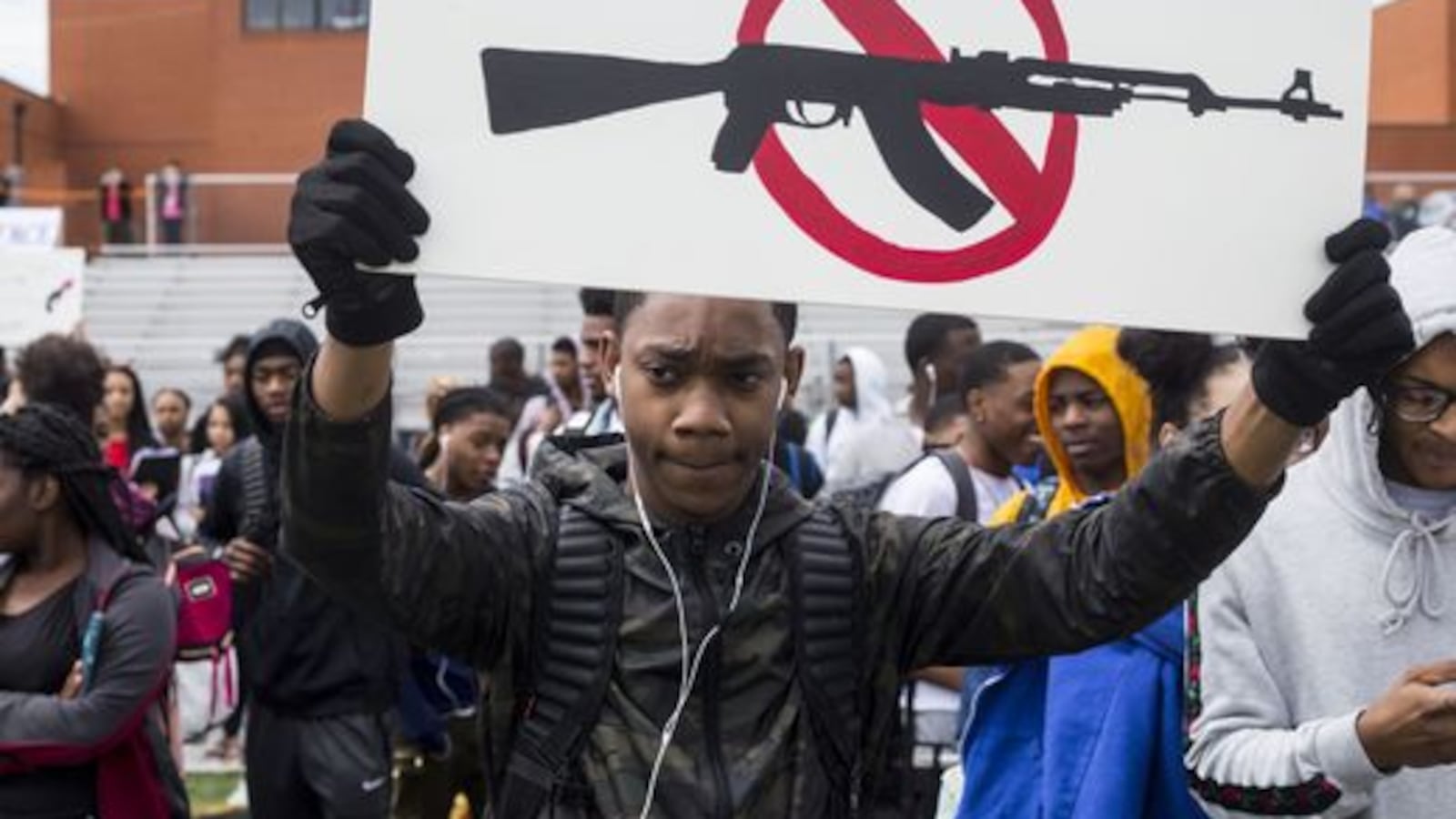A Memphis student may soon sit on the Shelby County Schools board following student demands last year for more input into district decisions, a spokeswoman said.
The idea is still in its early stages and has not been presented to the school board yet, chairwoman Shante Avant said. State law allows up to four students to hold a non-voting seat on school boards. For example, Hamilton County has had a student representative since 2001.
The student would be elected from Student Congress, a district leadership training program for students from most of the district’s more than 30 high schools.
The initial efforts to provide a new platform for student concerns comes a year after Memphis student leaders joined walkouts across the nation seeking safer schools in the wake of a deadly shooting in Parkland, Fla. After the walkouts, some students called for the school board and other district leaders to change how the district operates.

Some student concerns were already being addressed by the district, even before the walkouts, such as hiring more school counselors and advocating against arming teachers with guns. Others were launched later, such as training for educators to spot childhood trauma, creating a student affairs department, adding an upcoming phone application to report sexual harassment and bullying, and adding more mentor groups for black boys, the district noted.
The district also expanded Shape, an existing program to divert youth from juvenile detention, to include tutoring, improving social skills, monitoring behavioral progress, and teaching conflict resolution.
However, even with these changes, student leaders are not as optimistic about progress as leaders are from Shelby County Schools.
Savanah Thompson, a sophomore at White Station High School who helped coordinate walkouts, said she was pleased the district hired a full-time coordinator to handle investigations into sexual harassment and gender discrimination complaints from students. Those duties, required by federal law under an amendment known as Title IX, were previously handled by an employee with other job responsibilities, which students argued was insufficient to handle the volume in a district of more than 100,000 students.
“I really think that may be the only demand that has truly been addressed and we have a long way to go even on that,” she said.
But she was unaware of any other progress by the district. She said no changes had been communicated to her and the rest of the student group, including adding a student board member.
Board member Joyce Dorse-Coleman said a student member would add a key voice as the board makes decisions.

But not all board members support the idea. Miska Clay Bibbs said the demands of the position could compromise a student’s academics. She gave an example of a previous school board committee that initially included two student representatives, but the students ended up only attending a fraction of the meetings because of their studies and extracurricular activities.
“My first main concern would be the time demand. We meet more than any elected body in the city. That’s something people don’t think of,” Bibbs said, adding she hopes to find other ways to add student voices. “Their first goal should be to graduate and to graduate with honors.”
Khya Cooper, a junior at Whitehaven High who organized a walkout there, said she has not been as involved with the district-level conversations, but has met with her school administration to find alternatives to out-of-school suspensions.
She said there is more student organizing to do.
“As far as the walkout I don’t think much has happened since then,” she said. “That has not happened yet because a lot of youth have not gotten together to get stuff done.”

